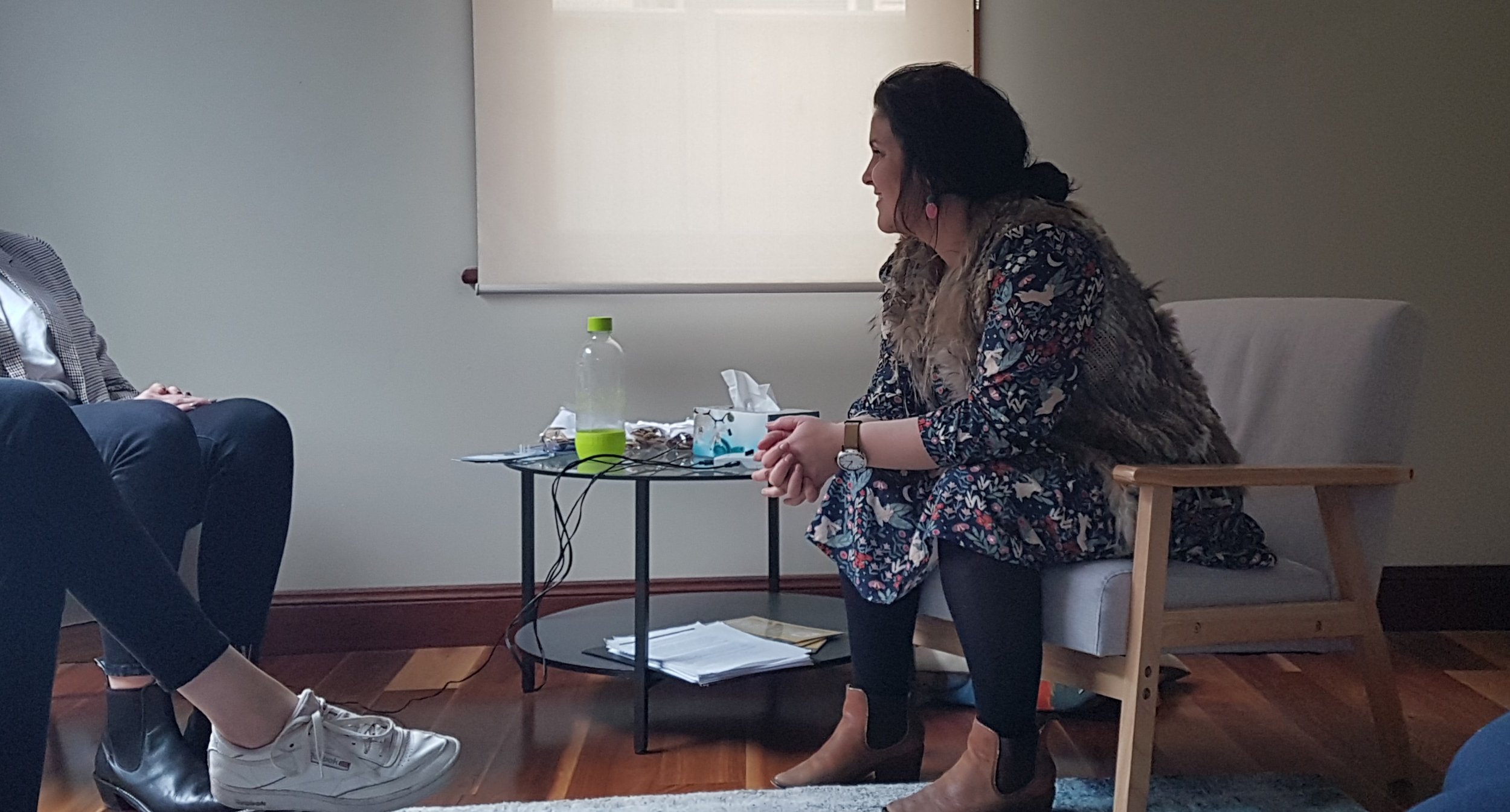What we do
The therapies we use and the tools we will teach you are tried and tested in the real world with real people like you. We don’t do fluffy theory all that well - we love treating trauma with real humans (not in classrooms).
We offer a viable alternative of a private fee paying service, with minimal waiting lists so you can access our services immediately.
AWI Consulting IS A highly SKILLED TEAM OF CLINICIANS that can provide effective treatment for clients with mild to moderate mental health conditions or disabilities that respond well to focused psychological strategies.
AWI Consulting has staff that are based in Rural and Regional NSW, so we understand the issues faced when living in the country. We cover the areas of Young, Cowra and surrounds.
During the pandemic that impacted Australia and the world, AWI Consulting expanded services to include telehealth, phone, audio and video conferencing counselling options for our clients.
AWI Consulting are able to undertake autism, cognitive and adaptive assessments that can be used by Centrelink and NDIS. Please call us to discuss your requirements and we can arrange a quote to cover various assessments.
Counselling
We can help with:
Personal issues such as anxiety and depression, stress management, grief and loss, low self-esteem, emotional or physical abuse, interpersonal conflicts, and complex trauma.
Family issues including work-life balance, concerns about children, parenting, relationship issues, financial or legal concerns, substance abuse, and conflict resolution.
Work issues such as problems with performance, relationships with colleagues, career change, managing conflict, traumatic events, critical incident, redundancy, and uncertainty.
Trauma-Informed & Healing Focused Therapy
Trauma-Informed Practice is a strengths-based framework grounded in an understanding of, and responsiveness to, the impact of trauma that encompasses physical, psychological, and emotional safety for everyone, and that creates opportunities for survivors to rebuild a sense of control and empowerment (Hopper et al., 2010).
Trauma-informed care and practice recognises the prevalence of trauma and its impact on the emotional, psychological, and social wellbeing of people and communities. Awareness of trauma, including of complex trauma has progressed over the last 20 years. This includes the development of the framework called “trauma-informed care and practice”. Trauma based practice considers recent developments and knowledge around attachment, development, working with the body, memory, and an understanding of self. Frameworks of care and treatment are changing from purely bio-medical (medicine and psychiatry) and/or purely psychoanalytical (psychology) to include the psycho-social (trauma-informed) and a recovery focus (recovery-oriented), to enable a sense of control and empowerment (Hopper et al., 2010).
Therapy can be an effective treatment in kicking the butt of a whole host of mental health and emotional problems. Simply talking about your thoughts and feelings with a supportive person can often make you feel better. It can be healing, in and of itself, to voice your worries or talk about something that’s weighing on your mind. And by geez it feels good to be listened to - to know that someone else cares about you and wants to help.
While it can be helpful to talk about your problems with close friends and family members, sometimes you don’t want to burden them and you need more help than the people around you can provide. When you need extra support, an outside perspective, or some expert guidance; talking to a counsellor can help. While the support of friends and family is important, therapy is different. Oh, so DIFFERENT! Your clinician is a professional that can help you get to the root of your problems, overcome emotional challenges, and make long lasting positive changes in your life. Happy days!
You don’t have to be diagnosed with a mental health problem to benefit from therapy. Many people in therapy seek help for everyday concerns: relationship problems, job stress, or self-doubt, for example. Others turn to therapy during difficult times, such as a divorce. But in order to reap its benefits, YOU need to be ready to put in the hard yards with your clinician. You’ll learn to trust your clinician and together you can kick butt! Hey, you might even have some fun along the way.
EMDR
EMDR stands for Eye Movement Desensitisation and Reprocessing Therapy. It is an entire therapy model that has been proven to be highly effective for those who have experienced trauma.
During times of trauma, our brain can process and store memories incorrectly. This incorrect storage can lead to past memories feeling very present. Different triggers in the present can lead people to react as they did at the time of trauma. The brain and the body feel charged up as if the past traumatic event is happening right now.
EMDR therapy is founded on the basis that our emotional wellbeing is woven in with our physical (somatic) state. EMDR employs a body-based technique called bilateral simulation (which just means 2 sides) during which a clinician will guide a client through eye movements, tones, or taps. This allows an incorrectly stored memory to move to a more functional part of the brain so that the painful memories associated with the trauma lose their charge.
This is believed to mimic the natural memory processing characteristics of REM (Rapid Eye Movement) sleep and disrupt working memory, thus facilitating the brain to successfully process a memory or issue. Once traumatic memories have been desensitised and reprocessed, they no longer have the same negative impact. Memories typically become less vivid and upsetting, intrusive symptoms, such as nightmares and flashbacks, reduce or cease allowing more adaptive beliefs to emerge.
The EMDR Treatment Process:
Identification and mapping of significant life events and traumatic experiences
Development of resources, coping strategies, and grounding techniques
Exploration of different aspects of your personality (parts of self)
Processing of traumatic memories using bilateral stimulation (typically eye movements).
The evidence that supports EMDR:
EMDR is a widely researched and supported therapy for the treatment of trauma.
It is endorsed by:
The World Health Organisation (2013)
The Australian Psychological Society (2010)
The International Society for Traumatic Stress Studies (2009)
American Psychiatric Association (2004).
What happens during an EMDR Therapy session?
Once adequate preparation has taken place, memory processing becomes the focus of EMDR treatment. The client is invited to think about a particular disturbing issue or event, and notice what images, thoughts, feelings, and sensations arise. The clinician then guides the client to move their eyes left and right, or uses another form of bilateral stimulation such as sounds or taps. The bilateral stimulation is repeated in sets throughout the session, with pauses and brief reflection in between. This process continues until the target issue or memory becomes less disturbing and adaptive insights emerge. The EMDR Clinician will allow time to debrief the session, and often the session will conclude with some form of grounding or relaxation exercise. The client is fully awake, alert and in control at all times during an EMDR session.
For more information about EMDR, please take a gander at the EMDRAA (The Aussie fellas) website here.
CBT/DBT Therapies
CBT - Cognitive Behavioural Therapy
Cognitive behavioural therapy (CBT) is a form of talk therapy which can be used to support people with a wide range of mental health problems.
CBT is based on the idea that how we think (cognition), how we feel (emotion), and how we act (behaviour) all interact together. In other words our thoughts determine our feelings and our behaviour.
When we think in a negative or unrealistic way, this can make us feel pretty cruddy and can cause us distress and result in problems. When we experience psychological distress, the way in which we interpret situations may become skewed, which in turn may have a negative impact on the actions we take.
The aim of CBT is to help us become more aware of when we make negative interpretations of situations or people, and in turn behaviours that reinforce the crappy thinking. CBT helps to develop alternative ways of thinking and behaving which aims to help us feel better.
Using CBT will teach you how to identify these negative thoughts through a process of evaluation. You will learn to tell the difference between your own thoughts and reality. You will learn the influence that your thinking has on your feelings, and then you may be able to recognise, observe and monitor your own thoughts - just like you would the weather.
DBT - Dialectical Behavioural Therapy
Marsha Marsha Marsha! Dialectical behaviour therapy (DBT) was the brainchild of Marsha Linehan back in the 80’s and aims to teach people how to live in the moment, develop healthy ways to cope with stress, regulate their emotions, and improve their relationships with others.
Distress tolerance skills are a type of intervention in DBT where clients learn to manage distress in a healthy way. DBT is a strengths-based and collaborative therapy. Skills learnt during DBT are helpful for situations where a client might not be able to control a situation, but they need to manage their own response. Distress tolerance can be learnt alongside emotional regulation techniques, mindfulness, and reflecting on, and improving, interpersonal skills and reactions.
Psychological and Educational Assessments
In many ways, psychological testing and assessment are similar to medical tests. If you have physical symptoms, your doctor may order x-rays or blood tests to understand what's causing those symptoms. The results of the tests will help inform and develop a treatment plan.
Psychological assessments serve the same purpose. Psychologists use tests and other assessment tools to measure and observe your behaviour to arrive at a diagnosis, and guide treatment.
Psychologists administer tests and assessments for a wide variety of reasons. Children who are experiencing difficulty in school, for example, may undergo aptitude testing or tests for learning disabilities or specific learning disorders.
If a person is having problems at work or school, or in personal relationships, tests can help us understand whether you might have issues with anger management or interpersonal skills, or certain personality traits that contribute to a problem. Other tests evaluate whether you are experiencing emotional disorders such as anxiety or depression.
AWI Consulting are able to undertake Autism Assessments, Psychometric and Educational Assessment of cognitive (IQ), adaptive and developmental functioning for children, adolescents and adults. Educational assessments let you, as a parent or carer, get a good grasp on your child’s difficulties and equip you with practical, evidence-based strategies to help improve your child’s performance, social-communication skills and to help them achieve their full potential. Children who are experiencing difficulty in school, for example, may undergo aptitude testing or tests for learning disabilities or specific learning disorders.
Concerns that parents often have include:
Your child is falling behind with their learning
Your child is finding it difficult to concentrate at school
Your child struggles to pay attention and focus in class and tells you “school is boring!”
Your child is excelling in maths but can’t read to save themselves
Give us a call to discuss your concerns and we can work with you and your child’s school and teachers to come up with a tailored plan to get your kiddo back on track.
Supervision for Therapists
AWI Consulting undertake workshops and supervision for those with a thirst for knowledge in treating trauma. We take a collaborative approach to mentoring and up-skilling, focusing on improving your confidence and abilities so that you can make a positive difference in your client’s lives.
In clinical supervision, the central focus is on both the optimum treatment outcome for the client and the professional development and self-care of the clinician. You can’t pour from an empty cup. Seriously, give it a go, and good luck with that. You as a clinician need to be at the top of your game to be able to help those you work with.
In a nutshell, clinical supervision is a contractual, collaborative process which monitors, develops, and supports professionals in their clinical role as they work alongside clients. Clinical supervision exists in three forms: Individual Supervision, Peer Supervision, and Group Supervision.
Ways we can help you access support from AWI Consulting
Given the current pandemic impacting Australia and the world, AWI Consulting has expanded services to include telehealth, phone, audio and video conferencing counselling options for our clients.
Face-to-face
AWI Consulting has staff that are based in regional NSW. We cover Young, Cowra and surrounding areas, and are ready to catch up with you face to face.
Telehealth
Telehealth is the use of digital information and communication technologies, such as computers and mobile devices, to access health care services remotely and manage your health care.
Travel
We can travel to your location in rural or regional NSW. Speak to us about how we can tee up an appointment at your local GP surgery, or in your town.









